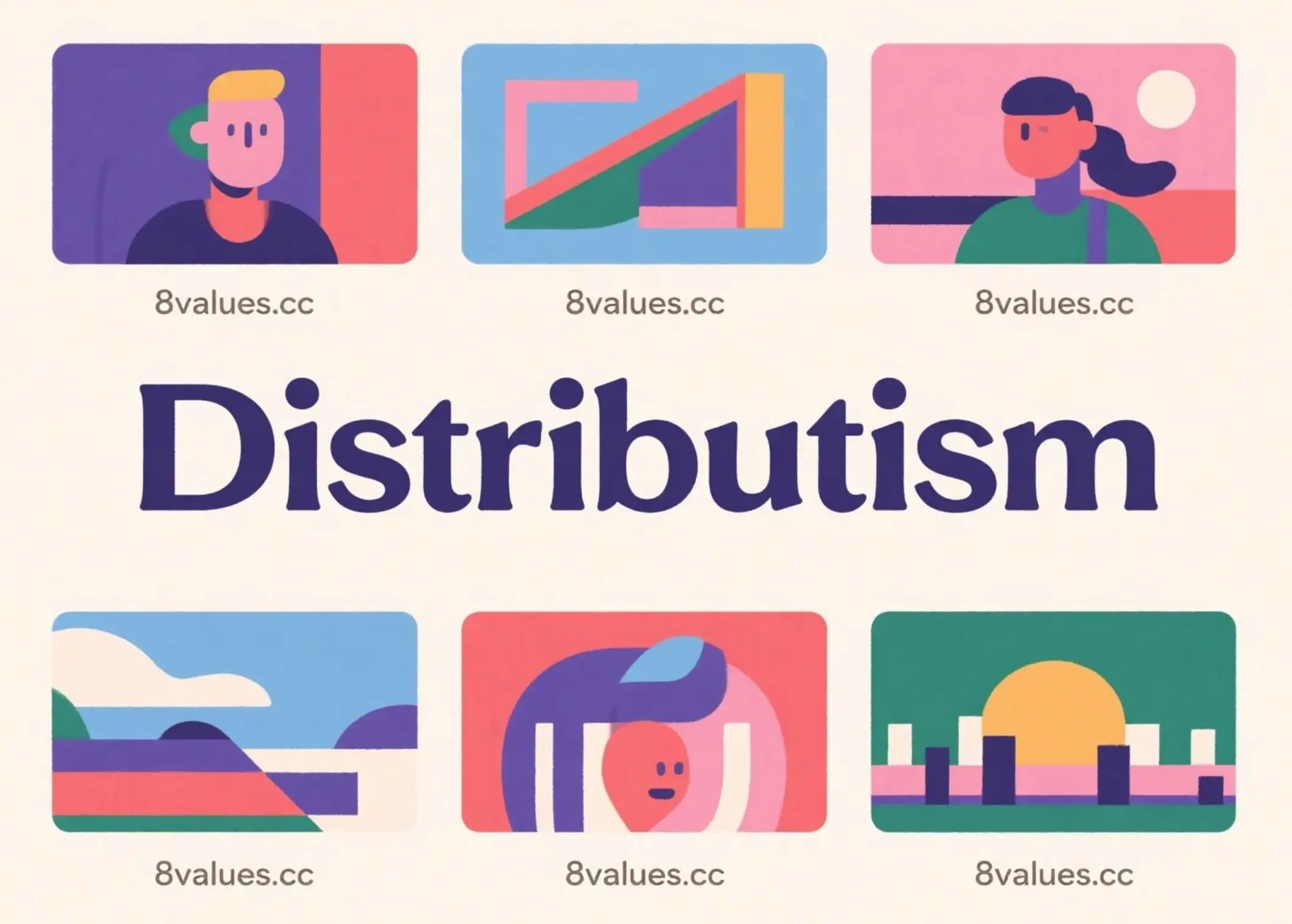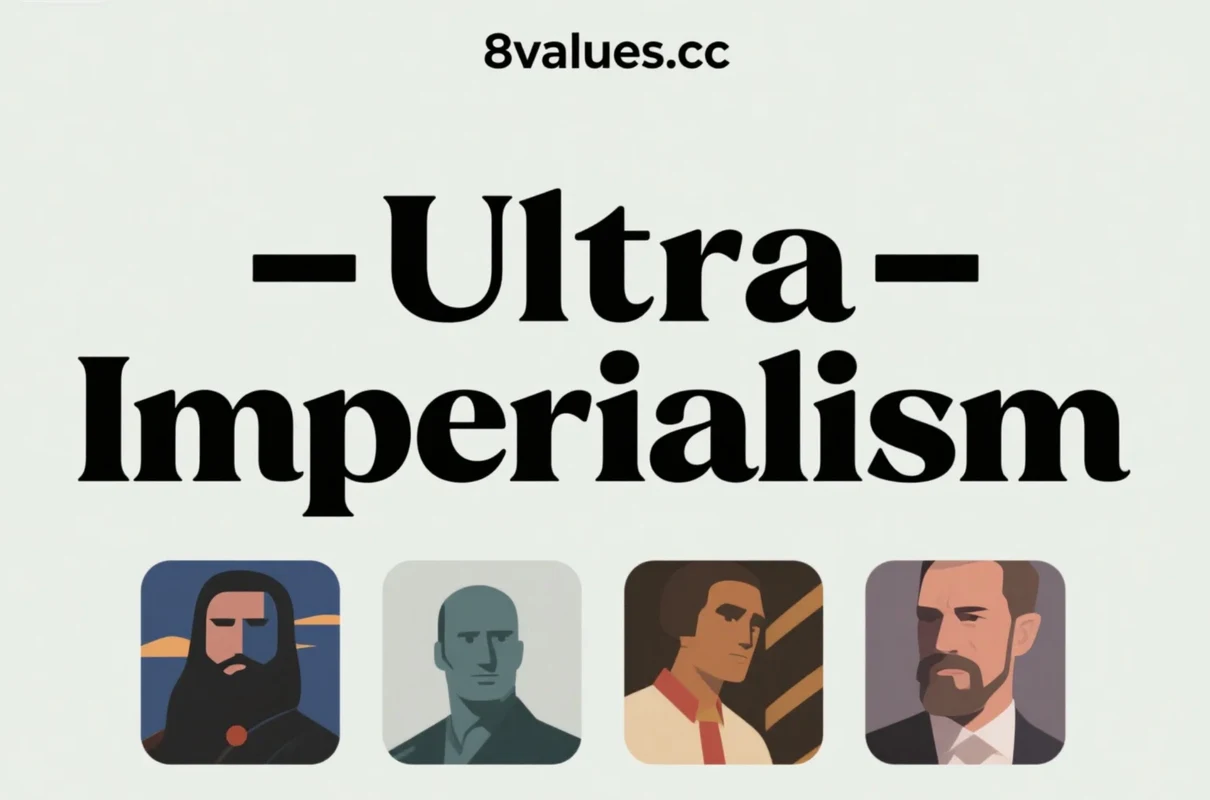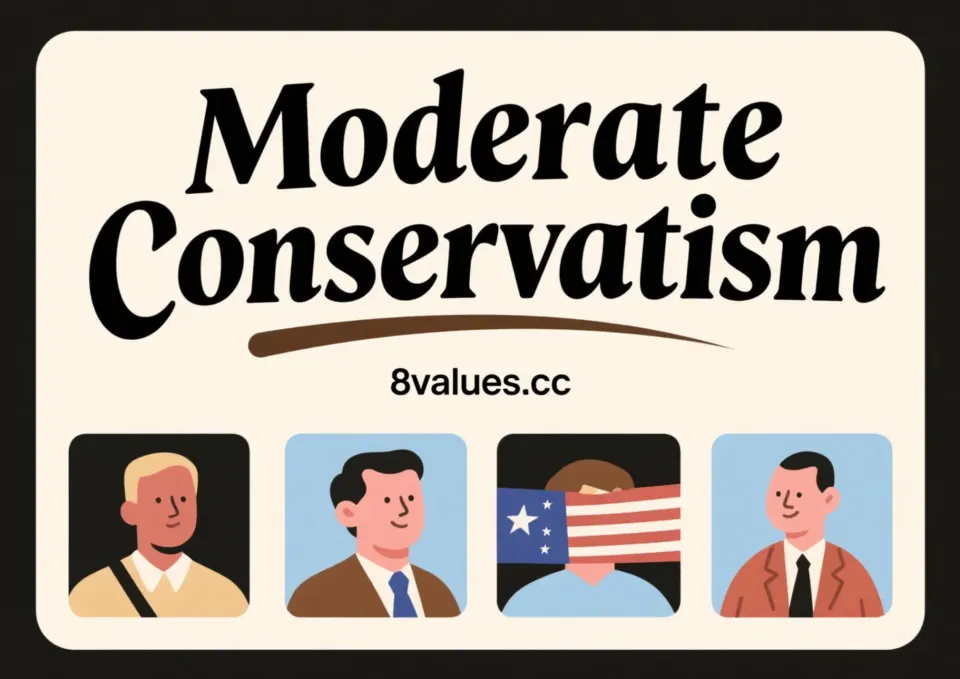8values In-depth analysis of test dimensions one by one + comparison table of typical political figures
After completing the 8 values, don’t understand the results? This article teaches you to interpret the 8values test results dimensionally, and compare typical politicians to accurately grasp your political spectrum, so that your political tendencies can be clearly seen.
In recent years, the 8values test (also known as _8 values political test_) has become one of the most popular tools for political tendency assessment. Many users will have a question after completing the test:
👉 “What do these dimensions mean?”
👉 “What politicians do I have when I put my results in the real world?”
This article will provide you with the most complete interpretation guide - analyzing the four dimensions of economy, diplomacy, people's livelihood, and society one by one, and combining the comparison table of typical politicians to help you understand your political spectrum more intuitively.
1. 8 values test results interpretation framework
The results of 8values are composed of four groups of opposing value pairs , each group corresponding to two directions. The test will give you percentages in both directions and plot them on a 2D political coordinate chart.
The four core dimensions are:
- Equality vs. Markets
- Diplomacy Axis (Nation vs. Globe)
- Liberty vs. Authority
- Social Axis (Tradition vs. Progress)
Next, we will explain in depth one by one.
2. In-depth interpretation of the four dimensions one by one
1. Economic dimension: Equality vs. Markets
- Equality
- Emphasize wealth redistribution, welfare system, and social fairness.
- Inclined to support progressive tax system, public health care, and education inclusiveness.
- Markets
- Emphasizes the free market, personal wealth accumulation, and corporate vitality.
- Inclined to support low taxation, free trade, and deregulation.
Typical characters comparison :
| direction | Representative figures | Political stance |
|---|---|---|
| Equality | Bernie Sanders | Social Democracy |
| Markets | Milton Friedman | Free market economist |
2. Diplomatic dimension: Nation vs. Globe
- Nation (country)
- Emphasize national sovereignty, border security, and national interests.
- Inclined to restrict immigration, support nationalism and protectionism.
- Globe (Global)
- Emphasize international cooperation, community of mankind, and global governance.
- Inclined to support multilateral organizations, free trade, and international human rights.
Typical characters comparison :
| direction | Representative figures | Political stance |
|---|---|---|
| Nation | Donald Trump | America First, Nationalism |
| Globe | Kofi Annan | Global Cooperation, United Nationsism |
3. Dimensions of people's livelihood: Liberty vs. Authority
- Liberty (Free)
- Emphasize individual rights, freedom of speech, and restrict government power.
- Inclined to support civil liberties, privacy protection, and decentralization.
- Authority
- Emphasize social order, national security, and legal constraints.
- Inclined to support strong government, national control, and collective security.
Typical characters comparison :
| direction | Representative figures | Political stance |
|---|---|---|
| Liberty | Ron Paul | Libertarianism |
| Authority | Vladimir Putin | Authoritativeism/nationalism |
4. Social dimension: Tradition vs. Progress
- Tradition
- Emphasize cultural continuity, religious values, and family ethics.
- Inclined to support conservatism and oppose drastic social changes.
- Progress
- Emphasize social reform, scientific and technological development, and diversified culture.
- Inclined to support gender equality, environmental protection, and social openness.
Typical characters comparison :
| direction | Representative figures | Political stance |
|---|---|---|
| Tradition | Benjamin Netanyahu | conservatism |
| Progress | Justin Trudeau | Liberalism/Progressiveism |
3. The comparison spectrum of typical political figures
In order to let you understand the positioning of 8values more intuitively, we have compiled a simple comparison table:
| figure | economy | diplomatic | People's livelihood | society |
|---|---|---|---|---|
| Bernie Sanders | Equality | Globe | Liberty | Progress |
| Donald Trump | Markets | Nation | Authority | Tradition |
| Justin Trudeau | Equality | Globe | Liberty | Progress |
| Vladimir Putin | Markets | Nation | Authority | Tradition |
| Angela Merkel | Equality in the middle | Globe | Authority | Tradition-Progress Middle |
| Ron Paul | Markets | Nation | Liberty | Tradition |
4. How to use 8values results?
- Compare international politicians – see which leaders you have a close spectrum.
- Compare the party’s position – find a more compatible camp in election or social issues.
- Self-reflection – Understand whether your political tendencies are stable or changeable.
V. Conclusion
8values Testing is not an absolutely authoritative political label, but a tool to help you understand your political values. If you find that the results are different from your expectations, you might as well think deeply: Which questions are chosen to reflect your subconscious position?
👉 Want a more intuitive experience?
You can test it for free directly at 8values.cc and get detailed results.






